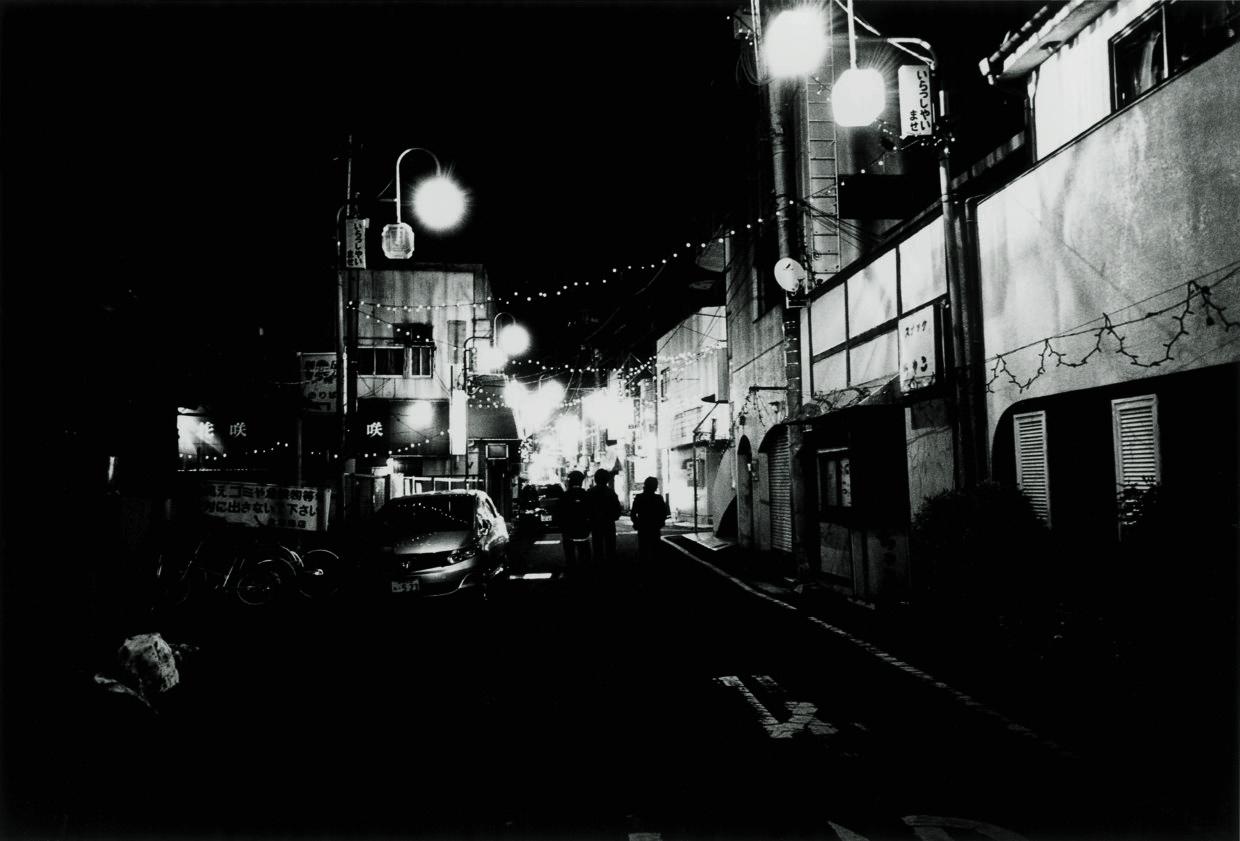Photo Commons
Photo: Daido Moriyama
I had an idea for a short story where every time you took a picture of something that already existed, it would display an existing one of the same scene. We take snapshots because we want the trophy, or to be able to use the captured information in some way after the fact (composition, framing, exhibition). "Snapshot" of course is a metaphor of hunting.
In this interesting article by Kenneth Goldsmith, he suggests that the primary function of a tool is the controller of content:
The camera doesn’t work for us. We work for the camera.
If we follow Flusser's argument, the teleological implication of all digital media is merely economic, e.g. Twitter makes us use the service to boost its share price. This could be true, but some information is being transmitted; People are indeed having conversations at some level.
Flussser also states: "Photographs permanently displacing one another according to a program are redundant precisely because they are always ‘new’ .…”
On social media, photographs become exactly that, via likes, shares, etc., which have economic side-effects as well.
The sheer volume of images of the same thing may cancel them out, and remove their unique ability to be iconisized. Ubiquity has destroyed the power of photography to create unique experiences. It couldn't possibly have replaced painting, as there can be an infinite number of copies. Photography resides on networks as a fungible object, and is changed by its context, similar to Josef Albers' interaction of color.
But in fact each photo is not a photo at all. A camera is a time recorder using light that also has spatial qualities, and can be used as an encoder of memory projected onto an object.
Goldsmith is correct to suggest the only way to make something interesting with a common object is to use it in unconventional ways, removing traces of tools used. Ultimately, it should not be necessary to separate out mediums and messages once something becomes fixed in an object (Donald Judd's Specific Objects), or becomes an experience, or in some other entity or state that is imbued with meaning.
***
Post-scripts:
(10/18/2015) It would be interesting to have some type of app where you could input your own photo and find similar ones that are in public domain or are sold as stock photography.
7/24/2024: This is essentially what Dall-e is. We now longer "work for a camera" but we work for AI.
***
Here's the camera that is acting on our behalf to save us from taking photos that thousands or millions of other people have taken, and reside somewhere on the Internet. The Camera Restricta
***
An interesting quote of Gerhard Richter on the impact of photography on painting (or making paintings from photos: "The masses of photographs that passed through the bath of [a] developer every day may well have caused a lasting trauma." (That the sheer numbers of photographs made us see the world differently.) Painting Beyond Pollock, p. 232


